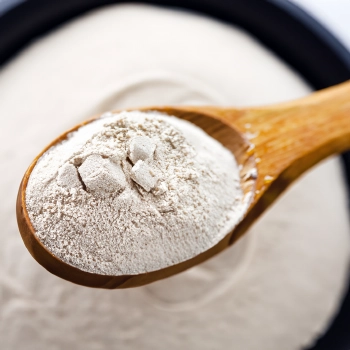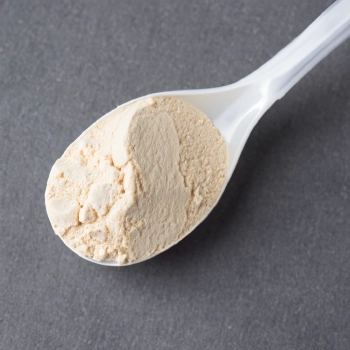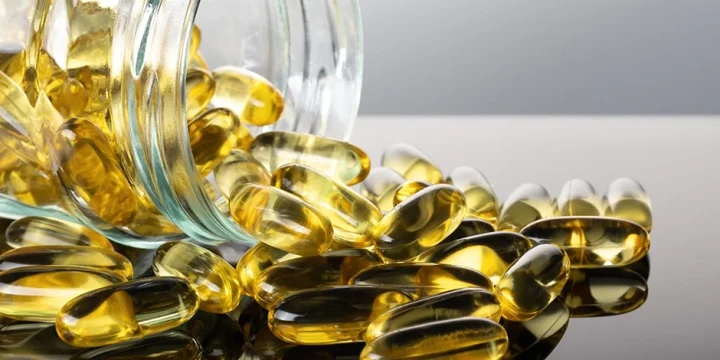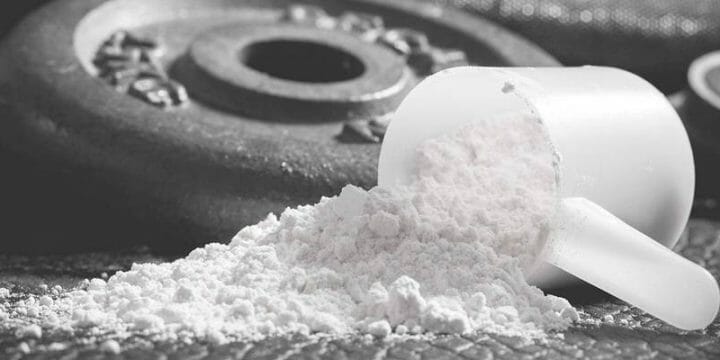Pre-workout supplements can potentially pose a risk to heart health due to their stimulant ingredients, like caffeine, which have the tendency to elevate heart rate and blood pressure.
I have often observed patients with varying responses to these supplements. For those with pre-existing heart conditions, it is crucial to exercise caution when considering the use of pre-workouts, prompting me to conduct an extensive investigation.
For a detailed guide, I've compiled safety measures, such as reading labels, starting with lower doses, and monitoring your body's response to find the best choice for you.
Quick Summary
- Pre-workout supplements can impact heart health by increasing blood flow and heart rate during exercise, potentially leading to cardiovascular strain.
- High doses of caffeine in pre-workouts can raise the risk of hypertension, affecting those with pre-existing conditions and increasing their chances of heart problems.
- In 2021, 45% of U.S. deaths were attributed to poor nutrition, emphasizing the importance of choosing heart-healthy pre-workout alternatives for overall heart health, especially during workouts.
- Based on personal observations, I recommend individuals, especially those with heart conditions, to consider pre-workouts without stimulants to avoid elevated heart rates and palpitations during exercise.
Is Pre-Workout Bad For You Heart

Pre-workout supplements, especially those with stimulants like caffeine, can elevate heart rate and blood pressure, posing potential risks to heart health.
Individuals, particularly those with pre-existing heart conditions, should exercise caution and consult healthcare professionals before using these supplements.
While these supplements may be significantly helpful in fast-tracking your fitness journey, it's important to weigh the different benefits and risks they can give to your heart.
For individuals lacking certain vitamins or striving for performance enhancement, these caffeine-free supplements that I recommend to my patients hold promise without taking a toll on their cardiovascular health.
Cardiovascular Risks of Taking Pre-Workouts
Pre-workout supplement makers aren't regulated by the FDA, so they bypass standard dosing rules. WebMD notes some pre-workouts have over 200 milligrams of caffeine (like two coffees), boosting energy but possibly upping risks like high blood pressure [1].
This risk is higher in those with severe coronary disease, sparking worries about serious heart issues.
Cardiovascular Benefits of Taking Pre-Workouts
Though solid research on pre-workout effectiveness is limited, user reviews suggest some ingredients enhance workout and sports performance, improving muscle oxygenation, endurance, and strength by boosting blood flow.
The National Institute of Health notes that pre-workouts with beneficial vitamins and amino acids can aid those with high cholesterol and clogged arteries [2].
Pre-Workout Ingredients That May Affect Your Heart

While pre-workout supplements may help improve exercise performance, certain ingredients included in these supplements may have differing effects on your heart health.
Here are some of these ingredients, and I have detailed my research on how each may potentially affect your cardiovascular system.
Caffeine
Cleveland Clinic states that pre-workouts can have 150–300 milligrams of caffeine per serving, triple the amount in regular coffee [3]. For moderate coffee drinkers, this could be worrying.
Caffeine boosts mental focus and athletic performance, but too much isn't great. Mayo Clinic warns that it can cause vasoconstriction, narrowing blood vessels and raising blood pressure [4].
As a doctor, I'm aware that this can lead to chronic high blood pressure, especially risky for those with heart issues.
"Caffeine is included in many supplements taken before any workout performance because it makes you feel good, gives a slight sense of euphoria, and gives you a burst of energy during your workout."
- Nicholas Paivanas, MD
L-Arginine and L-Citrulline

Boosting your intake of L-arginine and L-citrulline can improve health and gym performance. The National Institute for Health notes these amino acids widen blood vessels, improving blood flow [5]. This helps more nutrients and oxygen reach muscles while lowering blood pressure.
But, mixing these pre-workout ingredients with blood pressure meds could cause a big drop in blood pressure. From my experience, people without heart issues usually handle moderate doses of these amino acids in pre-workouts just fine.
Taurine
Taurine helps regulate water, electrolyte balance, and minerals like calcium in cells, aiding the nervous system.
The Journal of the International Society of Sports Nutrition highlights its role in boosting athletic performance by lessening muscle fatigue, aiding energy metabolism, and enhancing muscle contractions [6].
But, excessive taurine can cause a big drop in blood pressure. I always advise my patients to balance their taurine intake.
Related Article: Is Pre-Workout Safe For People with Diabetics?
Yohimbine

Sports Medicine research shows that yohimbine, in pre-workouts, has stimulatory effects and interacts with adrenoreceptors [7].
The National Institute for Health warns it can raise blood pressure and cause sympathetic nerve responses in hypertensive people [8].
I caution hypertensive patients and those on antidepressants to consult me or their fitness trainer before starting any new supplement for their workouts.
Vitamin B
According to Bridgewater State University, B-complex vitamins can aid in the production of energy, which in turn aids in the athlete's performance throughout a workout [9].
Also, the National Institute for Health has shown that B vitamins may improve heart health by lowering homocysteine levels, which are strongly linked to the risk of serious heart problems [10].
For most of my patients lacking these vitamins, I recommend they choose a supplement containing B vitamins, particularly B2 and B6, which I’ve found to benefit physical performance.
Are There Natural Food Alternatives to Pre-Workouts?

There are natural food alternatives that cater to pre-workout needs, and as a doctor, I emphasize the significance of a well-rounded diet in achieving optimal workout results while prioritizing heart health.
Below are four alternatives to traditional pre-workouts that may help support a healthy heart.
- Green tea - Harvard Medical School research suggests green tea as a pre-workout might cut cardiovascular risks. It's linked to lower LDL cholesterol and triglycerides, reducing heart disease and stroke risk [11].
- Oatmeal - A bowl of oatmeal before workouts is a solid choice. Mayo Clinic notes it's good for heart health, lowering bad cholesterol with its soluble fiber [12].
- Yogurt - Greek yogurt is another heart-friendly option. WebMD reports it can lower cholesterol and triglycerides, helping maintain normal blood pressure and a healthy weight [13].
- Peanut butter sandwich - Peanut butter sandwiches are beneficial too. A Japan Public Health Center study found they lower heart and stroke risks, thanks to the healthy fats in peanuts improving cholesterol, reducing blood pressure, and cutting heart disease risk [14].
Although these choices enhance performance and heart health, they might not fit experienced fitness enthusiasts. The market offers specialized supplements tailored for fitness progress, keeping heart health in mind.
Related Articles:
FAQs
Can Pre-workout Cause Health Problems?
Pre-workout supplements can potentially cause health problems if used improperly or excessively. Some common issues associated with pre-workouts include increased heart rate, high blood pressure, and trouble sleeping. However, these health issues can be prevented with the proper choice and use of the supplement.
Can You Have a Heart Attack Dry Scooping Pre-Workout?
Dry scooping pre-workouts can potentially lead you to have heart attacks because taking the concentrated dose of caffeine in an intense manner can prompt chest pain and heart-related issues. According to the National Capital Poison Center, individuals who've tried dry scooping have experienced significant adverse effects, including heart problems [15].
What Happens if You Take Too Much Pre-Workout?
If you take too much pre-workout, adverse events like increased heart rate, high blood pressure, jitters, and trouble sleeping can happen. Moreover, some individuals may experience more severe issues like irregular heartbeats, dehydration, and cardiac problems. It's crucial to follow recommended dosages and assess your tolerance level.
How Safe Is Pre-Workout?
Pre-workouts can be relatively safe for many people when used according to guidelines. Generally, the safety of pre-workout supplements depends on individual health, ingredients, and proper usage. However, some pre-workouts may contain stimulants like caffeine and other compounds that can affect individuals differently.
Can Pre-Workout Give You a Stroke?
Pre-workouts can potentially increase your risk of a stroke when consumed in excessive amounts. The high doses of stimulants in some supplements can elevate blood pressure and heart rate, potentially leading to adverse cardiovascular effects. Prolonged elevation of these factors may contribute to an increased stroke risk in certain individuals.
References:
- https://www.webmd.com/fitness-exercise/health-benefits-pre-workout-supplements
- https://www.ncbi.nlm.nih.gov/pmc/articles/PMC2696073/
- https://health.clevelandclinic.org/does-taking-a-pre-workout-actually-work/
- https://www.mayoclinichealthsystem.org/hometown-health/speaking-of-health/does-caffeine-treat-or-trigger-headaches
- https://www.ncbi.nlm.nih.gov/pmc/articles/PMC6469824/
- https://jissn.biomedcentral.com/articles/10.1186/s12970-021-00438-0
- https://www.tandfonline.com/doi/abs/10.1080/15438620600987106?journalCode=gspm20
- https://pubmed.ncbi.nlm.nih.gov/7690091/
- https://vc.bridgew.edu/cgi/viewcontent.cgi
- https://www.ncbi.nlm.nih.gov/pmc/articles/PMC4169527/
- https://www.health.harvard.edu/heart-health/green-tea-may-lower-heart-disease-risk
- https://www.mayoclinic.org/diseases-conditions/high-blood-cholesterol/in-depth/cholesterol/art-20045192
- https://www.webmd.com/diet/health-benefits-greek-yogurt
- https://www.ahajournals.org/doi/10.1161/STROKEAHA.120.031212
- https://www.poison.org/articles/dry-scooping-can-be-life-threatening
About The Author
You May Also Like






